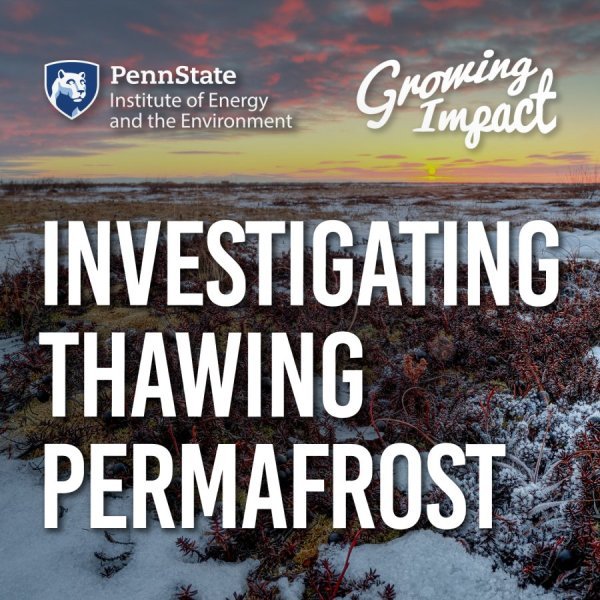How much of Pennsylvania is covered in water?
| abc27.com
Pennsylvania is covered by 86 percent of woodland and farmland, but how much of the Keystone State is covered in water? This article mentions Penn State research.
Penn State Sustainability releases slate of spring events focused on eco-action
| psu.edu
Penn State Sustainability — SustainPSU — is launching the spring semester editions of its "Sustainability Showcase" speaker series and Intersections film series, focused on this year's theme of "From Anxiety to Action." Both series will provide the Penn State community with opportunities to learn from sustainability leaders and hear inspiring stories of building community around solutions to sustainability challenges, rather than to be paralyzed by anxiety or inaction about the future.
SolarFest offers April 8 eclipse viewing, science activities | Eberly College of Science
| science.psu.edu
The Eberly College of Science is partnering with the State College Spikes to host the SolarFest event at Medlar Field at Lubrano Park.
From trees to teaching, Cindy Pizziketti makes a difference in York County
| psu.edu
Since joining the Penn State Extension Master Watershed Steward program in 2017, Cindy Pizziketti has volunteered more than 2,400 hours, the highest in York County.
Schreyer Institute names 2023-24 Teaching and Learning Scholarship grantees
| psu.edu
The Schreyer Institute for Teaching Excellence has named the recipients of its 2023-2024 Teaching and Learning Scholarship conference grants, which provide Penn State instructors of all ranks the opportunity to share their scholarship related to teaching and learning in Penn State courses.
30th anniversary Ashtekar Frontiers of Science Lectures to begin Jan. 27
| psu.edu
The Ashtekar Frontiers of Science Lectures in the Eberly College of Science, a series of free public lectures now in its 30th year, will return to Penn State on Jan. 27. In recognition of the milestone 30-year anniversary, this year’s lecture series, titled “Exploring Scientific Progress Over Time: Revisiting Past Lectures on the 30th Anniversary of the Ashtekar Frontiers of Science,” will look at how science has changed over the passage of time, including updates, breakthroughs and how research fields have evolved.
Here’s what you’re really swallowing when you drink bottled water
| washingtonpost.com
A new study finds that “nanoplastics” in bottled water are even more common than microplastics. This article quotes Sherri Mason, associate research professor and director of sustainability at Penn State Behrend. Similar articles were published in nearly a dozen other outlets across the country, including the Pittsburgh Post-Gazette.
Environmentally-friendly materials to de-ice your driveway
| abc27.com
As winter weather hits the Midstate along with many other parts of the Northeast, some people are looking for ways to remove snow and ice from driveways, sidewalks and other outdoor surfaces. This article mentions Penn State.
What to do after a flood in the Philly area
| inquirer.com
This article mentions the Pennsylvania Flood Risk tool, developed in partnership with Penn State and FEMA.
IST faculty and staff recognized at annual awards ceremony
| psu.edu
The Penn State College of Information Sciences and Technology recognized faculty and staff at its annual awards ceremony on Dec. 14, 2023.
$1.1M NSF grant to fund statewide cyberinfrastructure project
| psu.edu
Researchers at the Penn State Institute for Computational and Data Sciences, together with collaborators at other institutions within Pennsylvania, have been awarded approximately $1.1 million in funding under the U.S. National Science Foundation Campus Cyberinfrastructure program to develop a commonwealth-wide secure network and related cyberinfrastructure to interconnect Pennsylvania colleges and universities.
Bottled water contains thousands of nanoplastics so small they can invade the body’s cells, study says
| edition.cnn.com
In a trailblazing new study, researchers have discovered bottled water sold in stores can contain 10 to 100 times more bits of plastic than previously estimated — nanoparticles so infinitesimally tiny they cannot be seen under a microscope. This article quotes Sherri Mason, associate research professor and director of sustainability at Penn State Behrend.













